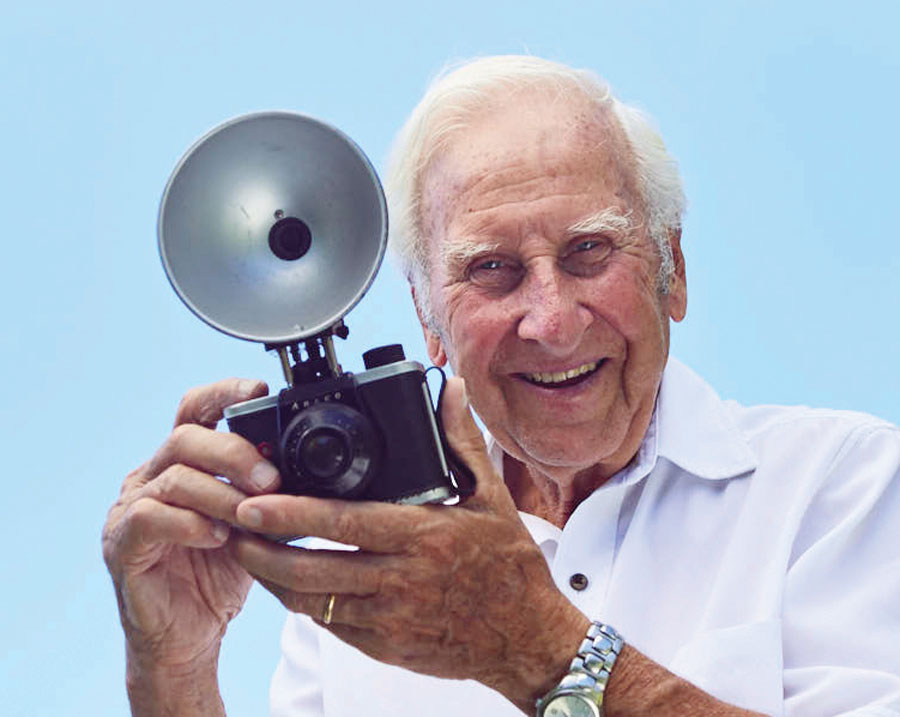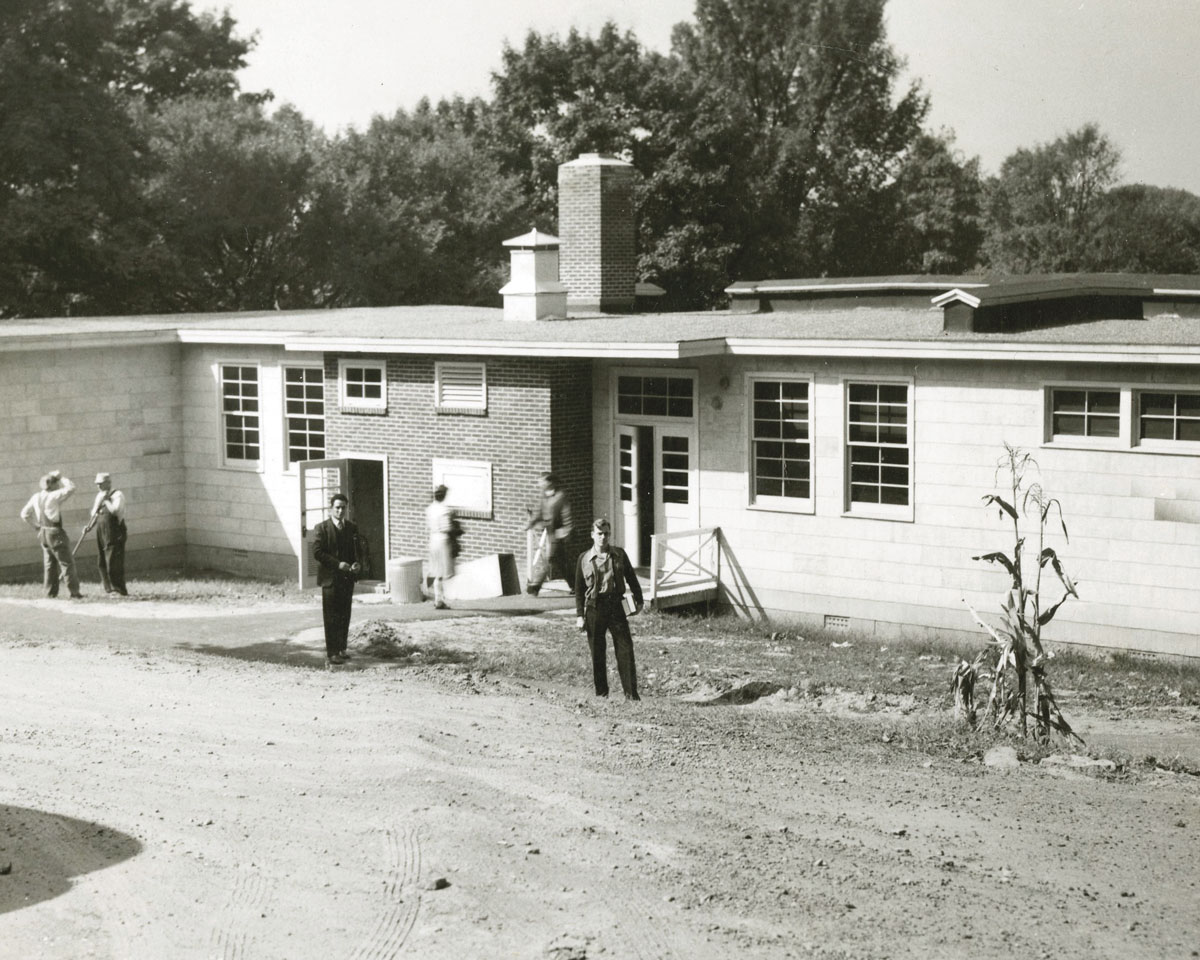
When Norman Weber ’54 made the journey from Maplewood, N.J., to Lewisburg in 1950, he brought along his love of photography as well as a desire to excel in his major, commerce and finance. But his first room assignment seemed destined to doom his study plans. How could one concentrate in a room occupied by 30 to 40 other first-year men?
What was then known as Steel Dorm — now the site of the Animal Behavior Lab on the west side of Route 15 — was a 40 foot by 100 foot steel building provided by the federal Public Works Administration in 1947.
Weber soon headed across the highway and requested alternate housing. Reassigned to a room in East College with one other first-year student, Weber flourished, but campus life became even more fulfilling once he joined Tau Kappa Epsilon (TKE) and moved to the fraternity house at 115 S. 7th St., adjacent to the Lewisburg Cemetery.
“The fraternal bond in our house brought me very close to others and taught me to appreciate and understand different people and their difference in opinions,” Weber says. Establishing a catering business to serve meals to his fellow TKEs also taught him skills he’d eventually use when running his own food company.
The TKEs were teetotalers, more interested in singing and playing in the marching band than partying, he recollects. Often, they spent their evenings practicing for the next opportunity to serenade a young woman who’d just received the fraternity pin of the man she was dating.
Weber, who played trumpet, declares that band director Allen Flock was “the most influential person in my whole life. He never turned anyone away if they could hold an instrument to their mouth and developed us in four years into a group that could perform on the field. When we looked at other university bands, they never came close to ours, musically or in the skill of our formations. He developed us to work as a team.” (The marching band was discontinued in 1992, according to Professor William Kenny, music.)
Weber used his medium- format Rolleiflex camera to document his experiences in the band, at campus formals and casual outings with friends. “I’ve always had a camera to record my journey in life,” he says. “I saw it as a tool for me to use to meet people.”
He also photographed campus events and landscapes. Ignoring signs forbidding anyone to climb the water tower ladder, he snagged a bird’s eye view of campus.
After graduation he returned to Newark to manage his family business, Weber’s Pickled Meat Products, which his great-grandfather founded in 1889. “I was able to use my experience from Bucknell in managing a business and handling people,” he says. Weber closed the business in 2005 when he retired.
He now lives in Sarasota, Fla., with his wife, Ann, in a home “right on the water with a 38-foot boat sitting right at my house.” He stays active as captain of his tennis team and photographer for his yacht club, now shooting with a digital Canon rather than a 2 ¼ by 2 ¼ Rolleiflex with a Zeiss lens. “I’ve taken about 8,000 pictures over the last 10 years, and I have every one of them on CD,” he says. “I just like to take pictures.”
Throughout his life, photography has been a staple. “I had different cameras after I graduated, and I started taking 35 mm slides — I’ve got about 4,000 of them. I was a deep-sea diver and took lots of underwater pictures. I don’t know what do with all of those.”
His desire to find a good home for some of those many thousands of images led him to offer his college images to Bucknell Magazine. Viewing them again after several decades, he marvels at how the color has held up. “After 65 years, they didn’t lose their definition.”


